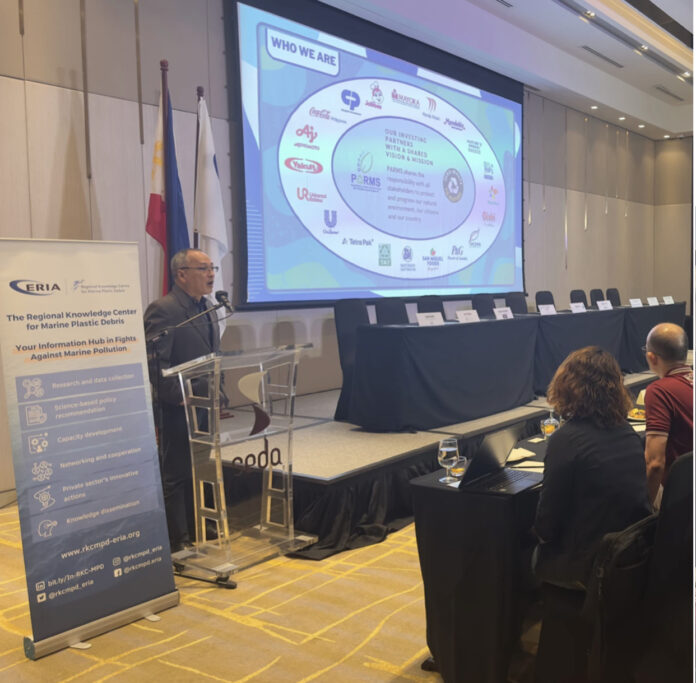Micro, small and medium enterprises (MSMEs), while not required to comply with the provisions of the Extended Producer Responsibility (EPR) Act, will do well to voluntarily undertake EPR to prepare for an increasingly circular economy, according to a waste management authority.
In a recent presentation, Commissioner Crispin Lao of the National Solid Waste Management Commission (NSWMC) said MSMEs who wish to voluntarily participate in EPR programs may do so by joining producer responsibility organizations (PROs).
A PRO is an entity or group that is authorized to support obliged enterprises in formulating, registering, implementing, and auditing their EPR programs.
One of these PROs is the Philippine Alliance for Recycling and Materials Sustainability (PARMS), a waste management group helping to reduce plastic pollution, welcoming the entry of MSMEs, free of registration fees, Lao said.
“For MSMEs who would like to voluntarily participate in EPR, PARMS, being part of PCCI also, has established a platform where an MSME can volunteer and register at no cost,” said Lao. The executive was also introduced as PARMS founding president during the forum on EPR hosted by the Philippine Chamber of Commerce and Industry.
PARMS earlier invited member enterprises of the Philippine Exporters Confederation Inc. (PHILEXPORT) to join their group, a broad coalition that develops and implements a program to increase resource recovery and reduce landfill dependence.
The nonprofit industry organization brings together various stakeholders in the recycling value chain—manufacturers, industry groups, retail groups, waste consolidators and haulers, recyclers, non-government and government entities—in managing plastic packaging waste scientifically and holistically.
The EPR Act lapsed into law in July 2022. The milestone environmental policy, also known as Republic Act No. 11898, was crafted in response to the clamor to regulate single-use plastics and their production, importation and disposal by industries.
Under the EPR Act, large enterprises are required to recover a certain portion of their plastic packaging waste or else pay a fine. They are mandated to register and submit their EPR program for approval by the NSWMC.
MSMEs are not covered by the EPR law, but they are encouraged to practice EPR voluntarily or be a part of PROs practicing EPR.
It is important that MSMEs start implementing green production processes voluntarily because more and more countries are imposing stringent regulations mandating EPR practices by their trade partners.
The Philippines alone generates 2.7 million tons of plastic waste, 20 percent of which end up in the ocean, according to a 2021 World Bank study. This wastage is attributed to the so-called “tingi-tingi” or “sachet economy” and to the poor implementation of green legislation as well as insufficient compliance with local solid waste management systems.
The PARMS website (www.parms.com.ph) lists among its investing partners giant corporations such as Ajinomoto, Coca-Cola Philippines, Jollibee, Monde Nissin, Nestle, Procter & Gamble, San Miguel Foods, SM Investments, Unilever, and Universal Robina.
Other PARMS partners include several industry associations, technology companies, academies, civil society groups, and NGOs.







